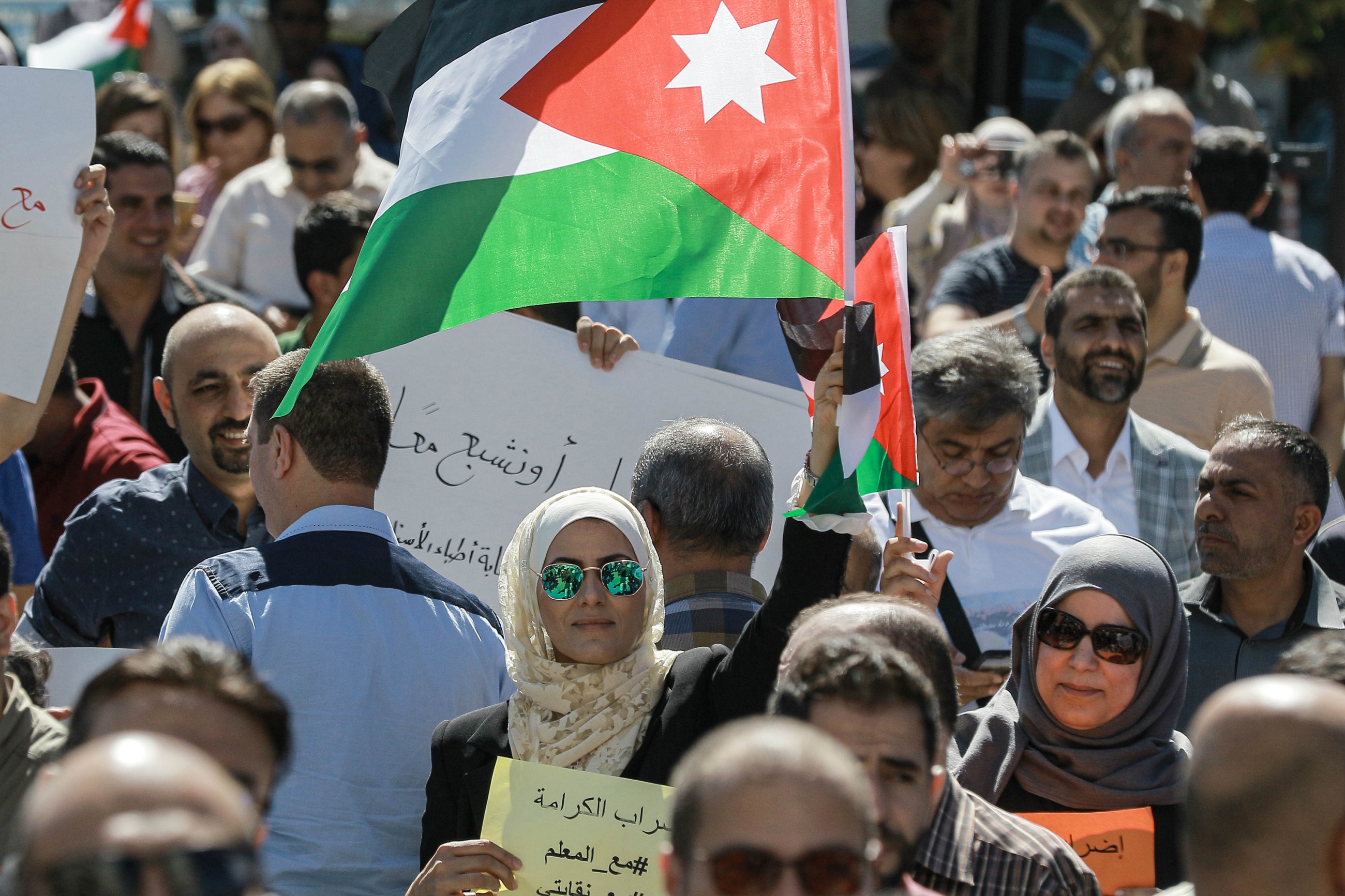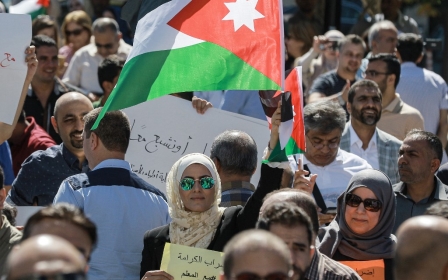Jordan gag on reporting teachers' dispute signals rising 'repression': HRW

Jordan has resorted to extraordinary measures to limit media coverage of its closure of the opposition-led teachers' union, reflecting a wider "slide into repression," Human Rights Watch said on Tuesday.
Authorities suspended the Jordanian Teachers Association (JTA) and arrested its leaders on 25 July after it led a campaign for higher pay in the deeply indebted kingdom whose economy is reeling from the coronavirus pandemic.
Sweeping gag orders issued by the courts against publication of details of the ban have also been used by the security services to stop coverage of the resulting protests, HRW said.
"The authorities have arrested at least two journalists in relation to their coverage of ongoing teachers' protests, and two were beaten by security forces while attempting to cover protests," it said.
HRW said it had interviewed eight local and foreign journalists operating in Jordan.
"All said that over the past few years, they have experienced increased restrictions on their reporting in the form of gag orders, harassment by security forces, and withholding of permits to report."
Thirteen members of the union's elected leadership are being detained based on legal complaints that some teachers have raised over the JTA contributing half a million Jordanian dinars ($705,000) to a fund established by the government to help the victims of the coronavirus pandemic.
Earlier this month, protesting teachers told Middle East Eye that they were standing "against the liquidation of an elected union".
Trouble between the government and the teachers is not new, with September 2019 witnessing the longest strike in the history of Jordan.
'We cannot talk'
Journalist and women's rights activist Rana al-Husseini told HRW she found herself self-censoring repeatedly to avoid falling foul of the crackdown.
"We cannot talk, we cannot address issues that matter to the public," she complained.
"They should allow us to operate freely or everything will sound like it is coming out of a government mouthpiece."
HRW's deputy Middle East director Michael Page said the ban on coverage of the teacher protests was "only the latest in a series of restrictions on press freedoms in the country".
"Jordan's shrinking space for journalists to operate reflects the country's slide into repression," he said.
Middle East Eye delivers independent and unrivalled coverage and analysis of the Middle East, North Africa and beyond. To learn more about republishing this content and the associated fees, please fill out this form. More about MEE can be found here.




